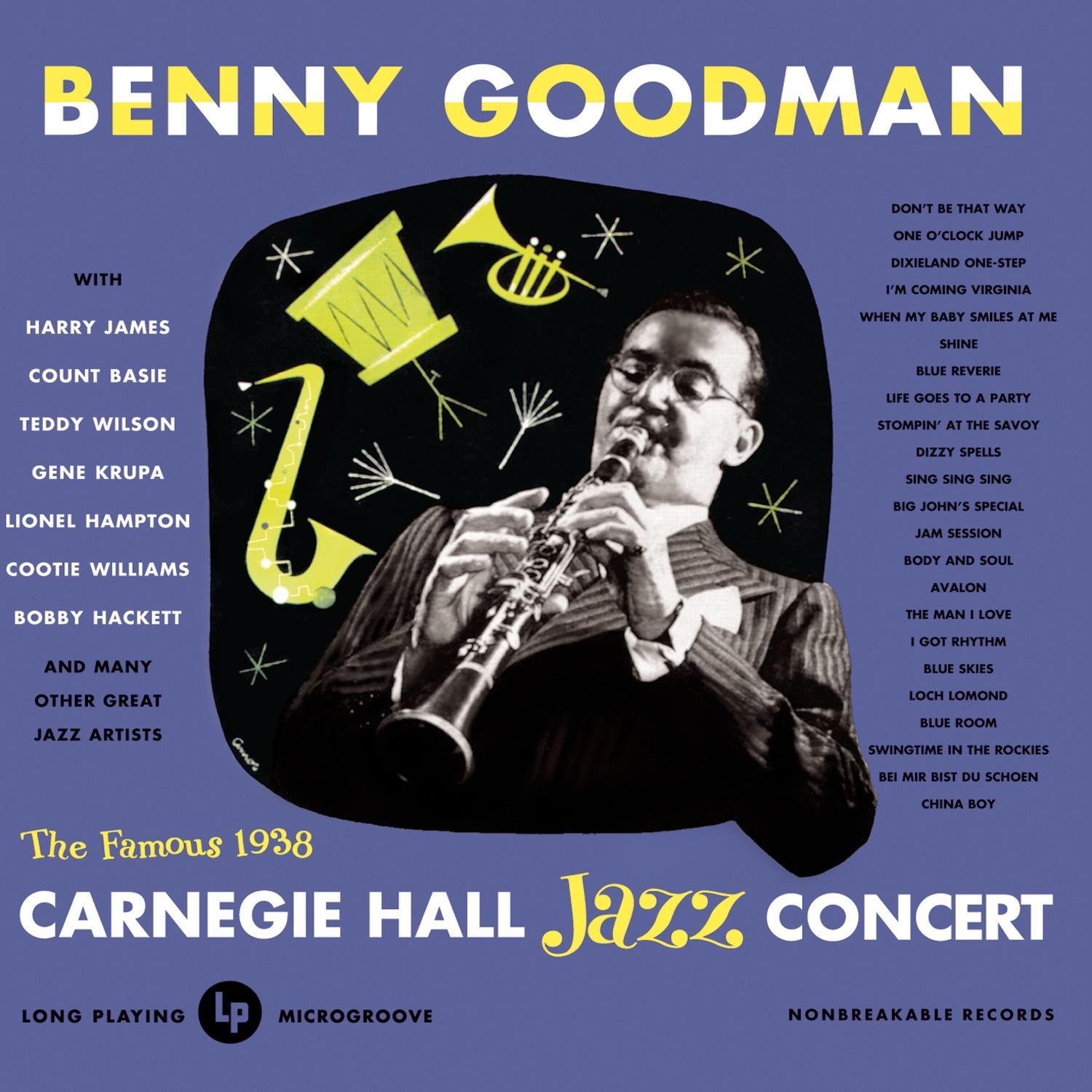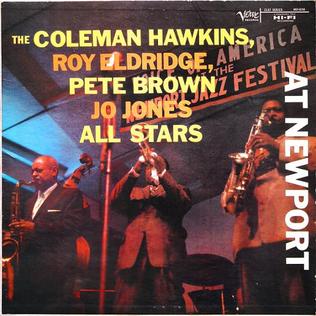
An event that changed everything. For better or for worse this was the concert that made jazz
acceptable (for want of a better word). Swing music was undoubtedly the most popular music in the land around this time but the idea of it being played in a place like Carnegie Hall in New York would have been deemed laughable in late 1937. Indeed the idea was mooted as a publicity stunt that Goodman at first was hesitant to entertain. Upon being convinced of the idea he set out to provide the audience at Carnegie Hall with a concert to remember.
Basically what emerged was a recording featuring members of the three biggest swing bands at the time; Duke Ellington's Orchestra, Count Basie's Orchestra and Goodman's own. You are talking Teddy Wilson, Lionel Hampton, Gene Krupa, Johnny Hodges, Cootie Williams, Buck Clayton, Lester Young, Freddie Greene (taking a very rare solo), Walter Page and more.
It's well documented how nervy the start of the show was. Like two boxers in the early round of a fight, the audience and the musicians didn't want to dive headlong into the experience with much aplomb from the very beginning. Things begin quite tepidly with "Don't Be That Way". Tepid that is until Gene Krupa decides to wake everyone up with his bass drum. He then lets rip with a quite startling short drum solo that the audience fully appreciates. His snare and high hat leads the band to a fitting finale.
The musicians eventually got into their stride. Goodman saw fit to include a historical perspective of jazz music by including some dixieland tunes including "Sensation Rag" by the Original Dixieland Jazz Band. Musicians from all three bands teamed up on an extended version of "Honeysuckle Rose". Lester Young opens with a sensational solo (you can see why he was inspiring young players like Charlie Parker around this time) followed by the light fingered Basie himself on piano. Krupa, knowing the vibe of Basie, kept things restrained on his part with his drumming smooth rather than bombastic. Buck Clayton's trumpet solo is followed in fine style by the alto of Johnny Hodges. Freddie Greene and (I assume) Walter Page establish why they were two parts of the finest rhythm section in musical history. Goodman demonstrates his chops with an impassioned solo followed by Harry James on trumpet. The two try to go toe-to-toe with Young for a few bars before the tenor saxophonist heavyweight puts them both on the canvas. Absolutely sublime stuff and surely one of the most significant recorded jam sessions in jazz history.
Arguably the most talked-about track of the album is its finale, "Sing Sing Sing". Goodman knew he was holding an unpinned grenade in the talents of Gene Krupa and he didn't disappoint. The outro is nothing short of joyous. This version of the song should be held in the same regard as "West End Blues" and "Body And Soul" as absolute classics. Carnegie Hall hadn't experienced the likes of Krupa's African inspired floor tom beats and things would never be the same again.
The arguments of the effect of this concert on jazz are perhaps for another day. (Coleman Hawkins was to return from Europe in about a year's time and lay down "Body and Soul" onto acetate which would open up a schism in the jazz world.) I think the album needs to be listened to purely on its merits.
SIDE ONE
1.
"Don't Be That Way"
2.
"One O'Clock Jump"
3.
"Sensation Rag"
4.
"I'm Coming Virginia"
5.
"When My Baby Smiles at Me"
6.
"Shine"
7.
"Blue Reverie"
8.
"Life Goes to a Party"
SIDE TWO
1.
"Honeysuckle Rose"
2.
"Body and Soul"
3.
"Avalon"
4.
"The Man I Love"
SIDE THREE
1.
"I Got Rhythm"
2.
"Blue Skies"
3.
"Loch Lomond"
4.
"Blue Room"
5.
"Swingtime in the Rockies"
6.
"Bei Mir Bist du Schoen"
7.
"China Boy"
SIDE FOUR
1. "Stompin' at the Savoy"
2.
"Dizzy Spells"
3.
"Sing Sing Sing (with a Swing)"
4.
"Big John's Special"



